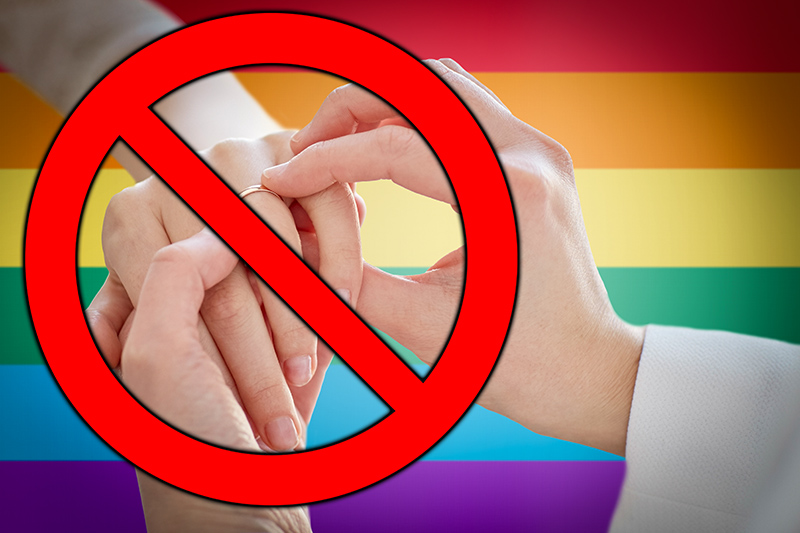Supreme Court Showdown
With Prop. 8 and DOMA heading for SCOTUS, historic hope mingles with quieter caution


Supreme Court: (L to R) Thomas, Sotomayor, Scalia, Breyer, Roberts, Alito, Kennedy, Kagan and Ginsburg
Advocates have been left energized but wary following the Supreme Court’s Dec. 7 announcement that it will weigh in on a pair of cases regarding state and federal marriage laws.
By June 2013 the Supreme Court’s nine justices will determine the constitutionality of the federal Defense of Marriage Act as well as California’s Proposition 8 in two decisions that could be just as sweeping in scope as halting to a movement ”with the wind at its back.”
Few were surprised by the high court’s decision to take up United States v. Windsor, which surrounds the 1996 Defense of Marriage Act that forbids federal recognition of same-sex marriages. Under Section 3 of DOMA, married same-sex couples are denied the federal benefits enjoyed by their heterosexual counterparts.
The Windsor case was one of several concerning DOMA petitioned for review by the Supreme Court. Federal judges across the country have struck down DOMA as unconstitutional and discriminatory in recent years.
Indeed, the Windsor case also has a human story worthy of the struggle endured by millions. Edith Windsor has been challenging DOMA since 2010, following the death of her wife, Thea Spyer. Windsor is suing to recoup about $363,000, the federal estate tax she was forced to pay on her ”inheritance” from Spyer. The federal government does not tax wealth that passes to a surviving heterosexual spouse. Because of DOMA, however, the federal government has refused to recognize Windsor and Spyer’s marriage. According to the American Civil Liberties Union, which is assisting Windsor in her suit, payment of the federal estate tax is one of the most damaging impacts of DOMA.
Living most of their lives in New York City’s Greenwich Village, Windsor and Spyer were engaged to marry in 1967, and finally realized that dream with a Canadian wedding license in May 2007. Nevertheless, Windsor’s lawyers point out that DOMA requires the government to view the couple as legal strangers.
The case that left advocates nervously excited on Friday, however, was not the DOMA case, but the Proposition 8 case. While legal experts predicted the court to take up at least one DOMA case, few predicted the court to take up the Proposition 8 case.
The Supreme Court’s decision to hear Hollingsworth v. Perry comes after the California law was struck down by the Ninth Circuit Court of Appeals. Supporters of Proposition 8 petitioned the case after the court of appeals refused to rehear the case in June with the hope that the Supreme Court will reverse the lower court’s decision and keep the amendment intact.
The appeals court ruled in February that California could not take away rights that the state had previously granted to residents. That ruling came after a U.S. district court also struck down Proposition 8 in 2010, but on much broader grounds that no state could deny same-sex couples the right to marry.
In 2008, voters in California approved Proposition 8, amending the state constitution to ban same-sex marriage after the state had already granted same-sex couples the right to marry.
Although the Supreme Court could rule narrowly, it could also rule sweepingly in a decision reminiscent to the 1967 decision in Loving v. Virginia, which declared that laws restricting interracial marriage violated both the Due Process Clause and the Equal Protection Clause of the 14th Amendment.
Should the high court take the sweeping route and make a ruling similar to that by the district court in 2010, constitutional statutes in states across the country prohibiting same-sex marriage could be rendered void. Such a decision would be not only be revolutionary, but the national declaration of support advocates have long sought.
Just as easily, though, the court could rule that states have a right to limit marriage between a man and a woman, even if states cannot repeal marriage equality once granted. A ruling that the Constitution does not guarantee same-sex couples the right to marry would be a major setback for a movement that has enjoyed momentous victories in recent years.
Support Metro Weekly’s Journalism
These are challenging times for news organizations. And yet it’s crucial we stay active and provide vital resources and information to both our local readers and the world. So won’t you please take a moment and consider supporting Metro Weekly with a membership? For as little as $5 a month, you can help ensure Metro Weekly magazine and MetroWeekly.com remain free, viable resources as we provide the best, most diverse, culturally-resonant LGBTQ coverage in both the D.C. region and around the world. Memberships come with exclusive perks and discounts, your own personal digital delivery of each week’s magazine (and an archive), access to our Member's Lounge when it launches this fall, and exclusive members-only items like Metro Weekly Membership Mugs and Tote Bags! Check out all our membership levels here and please join us today!























